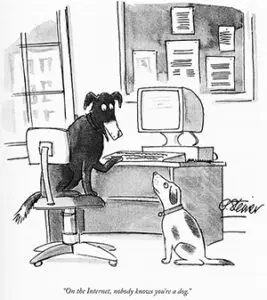The recent death of the Duke of Edinburgh has led to countless articles and editorials on the duke’s life and achievements. For not only was Prince Philip married to the most famous woman in the world, he lived through one of history’s most tumultuous eras.
Like others from his generation, the prince’s life was buffeted by the highs and lows of the twentieth century – from the Russian revolution, two world wars, global pandemics, to the lunar landings, scientific breakthroughs and the dawn of the internet age.
Yet while Philip lived a life of privilege – his family had more blue blood than the Windsors’ – his 99 years were dedicated to public service. As Duke of Edinburgh, the prince carried out 22,000 solo engagements, the last being when he was ninety-six. From the Queen’s coronation in 1953 to his ‘retirement’ in 2017, that equates to almost one engagement per day for sixty-eight years.
Not that he complained. Complaining was anathema to Philip’s generation. They kept calm and carried on. This is why sociologists call them the ‘Silent’ or ‘Great’ generation: they did their bit, without fuss or fanfare.
As they begin to recede into history, there are a number of important lessons that we can take from Prince Philip’s generation, which can help us navigate the unchartered waters of the post-pandemic world. Through the life of a prince, the time has come to listen to the Silent generation.
Here’s five lessons we can learn from the Duke:
1. Duty over ambition
Before the coronation, Philip was on track for a high-flying Royal Navy career. It was a career he was well suited for. Yet on becoming the Queen’s consort, Philip gave up his career to support his wife – a role he worked at for the next seven decades. Not only was this an act of immense self-sacrifice, for the time, it was extremely unconventional. Men in the 1950s weren’t expected to give up their jobs to support their wives.
Don’t confuse ambition for duty and doing what’s right.
2. Be prepared to invent your job
There was no job description for the role of consort. So Philip created one himself. Focusing on parts of the role where he could apply his skills and knowledge, he became an early champion for nature conservation, the environment, technology, and supporting disadvantaged young people – each of which was transformed with his support and backing.
Your ideal job might not have been invented, in which case, be ready to create it yourself.
3. Tell it like it is
Many of the articles commemorating Philip’s life have focused on his so called ‘gaffes’ and ‘faux pas.’ But this is to misread a key characteristic of his generation, which placed a premium on straight-talking. Compared to later generations, whose attitudes and opinions are mediated through concerns about pollical correctness and ‘acceptable’ ways of speaking, the ‘Silent’ generation was almost entirely authentic: what they thought, they said. And while Philip’s off-hand remarks are legendary, his direct approach had one big advantage: it got results. Those at the receiving end of one of Philip’s verbal broadsides generally appreciated the feedback and knew where they stood. Being direct, got things done, and quickly.
We all need a friend who can tell it to us straight. If you’re going to grow and improve, there may be times when it’s not a pat on the back you need, but a slap in the face (figuratively speaking, of course!)
4. Look after yourself
Throughout his life, Philip kept fit and active. He maintained a healthy lifestyle and looked after himself.
Eating and drinking in moderation, Philip was a great advocate for the ‘5 ways to wellbeing:’ stay active; take notice; keep learning; connect with others; give to others.
5. Don’t take yourself too seriously
Those who knew him well have commented on how the prince was always ready to laugh at the situations in which he found himself. This allowed him to put people at ease quickly and diffuse tensions he may have created with his off-hand remarks.
Being able to laugh at yourself – particularly if you feel yourself at risk of becoming slightly pompous – is one of the most powerful communication tools.







